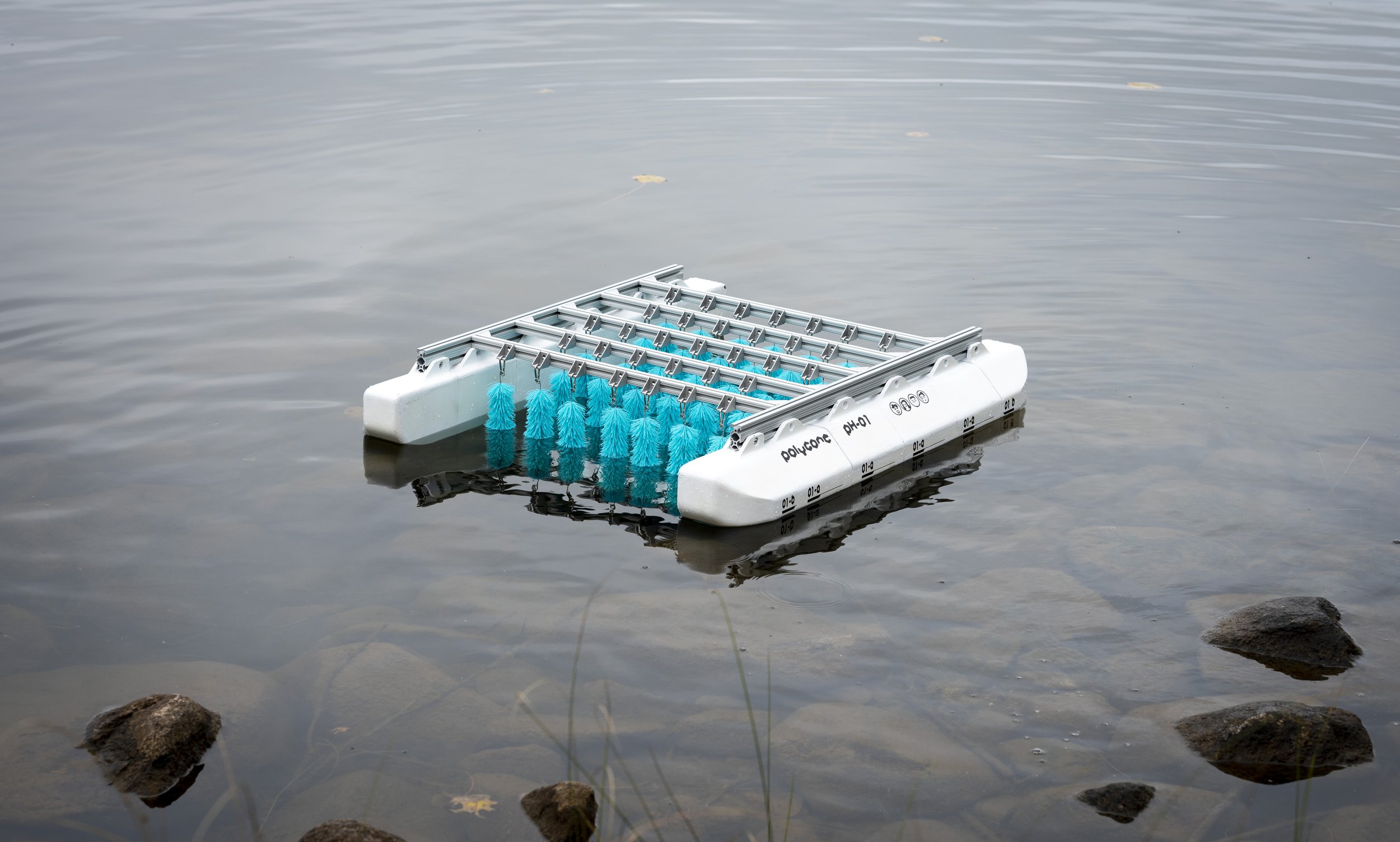CURB Launches New Microplastics Monitoring and Capture Project

by CURB Summer Science Intern Mireia Rosenblum-Martín
CURB recently deployed Princeton-based green tech startup PolyGone System’s “Plastic Hunter”, a mechanism that monitors and accumulates microplastics in various contaminated bodies of water, such as the Hudson. We utilize artificial root filters, structures designed to imitate sediment-catching aquatic plant roots, and made of hydrophobic silicone bristles that capture microplastics.
Microplastics are very small pieces of plastic (smaller than 5mm) that have recently been found to contaminate almost all natural environments, both on land and in bodies of water. They most often come from larger plastic debris, clothing, and personal hygiene products, which either contain or break down into microplastics that make their way into the food we eat, the air we breathe, and inside our bodies. Recently, they have been found to be present in about 80% of drinking water sources in 14 countries. One reason why microplastics are becoming an increasingly concerning issue to the public is many of them contain potentially toxic and carcinogenic additives.
Research has shown that riverine systems such as the Hudson play a significant role in the transmission of microplastics into drinking water sources and larger aquatic habitats like the ocean due to wastewater treatment effluents, urban runoff, and stormwater surges which are drivers of plastic pollution in rivers. Even while we know that rivers and effluents play a significant part in microplastic pollution, there is currently little to no infrastructure in place to capture microplastics. Preliminary results from 6 samples have found microplastics in the Hudson River ranging from 32 to 277 pieces of microplastic per liter of river water.
The purpose of this project is to inspire efforts to develop and test new aquatic filtration technologies intended to track and contain microplastics in riverine ecosystems, and it is funded through NOAA Sea Grant’s Marine Debris Challenge Competition via the Bipartisan Infrastructure Law and leveraging funds from the Inflation Reduction Act.